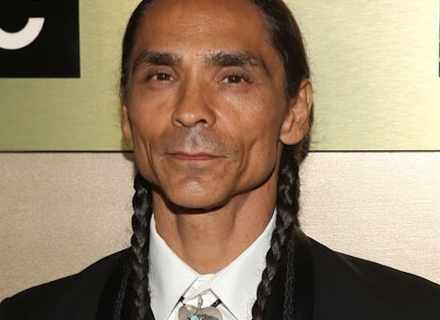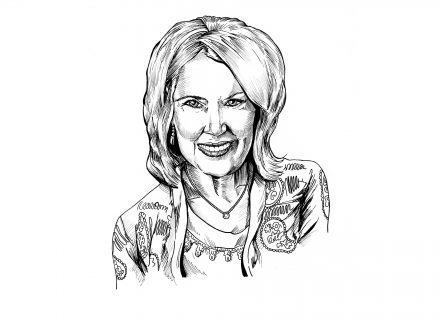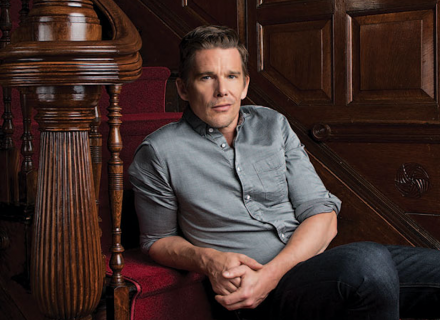C&I catches up with the country singer-songwriter about her new album, Scarecrow.
Cowboys & Indians: There’s a provocatively ambiguous quality to “Scarecrow,” the title cut on your latest album. The first time you hear it, you might figure it’s about a woman who’s just broken up with her cheating man. But when you listen a few more times, it’s just as easy to read it as the song of a woman whose husband or boyfriend has just died, and she’s only now realizing he was a louse. So we’re wondering ...
Lacy J. Dalton: [Laughs.] Go on. This is fascinating.
C&I: Well, what has been the response to the song when you’ve performed it during your live appearances?
Lacy: It’s pretty amazing, with all kinds of audiences. I’ll be in a casino, and I will sing that song in the middle of the set, in the middle of my familiar songs — and people will stand up and give me a standing ovation. And recently I was up in Washington State, and I was playing there for pretty much a Western audience — there’s a radio station up there that plays a lot of Western music, and I do have a following for that type of music. And this audience just leaped to its feet in the middle of my show after I sang this song. I tell you, I cannot categorize the song. If you ask me what kind of music it is, I’d be tempted to say Americana. But the president of the Americana Music Association told my manager that I was just not middle-of-the-road enough for Americana music. [Laughs.] So I’m calling it Extraterrestrial Music.
C&I: The music you’re writing and recording these days obviously has its roots in your early country hits like “Crazy Blue Eyes,” “16th Avenue,” and “Takin’ It Easy.” And of course, it’s always great to hear your distinctive vocals. But would you say you’re moving in a different direction?
Lacy: Well, “Scarecrow” is a song that just came out of me, and it came out of a very deep place after a long marriage and a betrayal that was astonishing to me. I think I thought I was probably the only person who ever suffered that much. Of course, that’s just stupid, but, you know, that’s how I felt at the time, like, “How could this be?” And that’s probably why people have responded the way they have to [“Scarecrow”].
C&I: Your first love was folk music, right?
Lacy: That’s true. The reason that I came back to country music was I grew up with it. My mom and dad played it all the time while I was growing up [in Pennsylvania]. But I went very, very strongly into folk music. That’s what I really loved, and I played that for a long time before I got my record deal. [Laughs.] And I got my record deal when I was ancient according to Nashville. They just couldn’t believe how ancient I was, that I was 33. It was like, “Oh my God, she’s too old. She doesn’t have big boobs, she doesn’t have blonde hair. What are we going to do with her?”
C&I: But, of course, they were the ones who started singing a different tune when you scored your first big hit, “Crazy Blue Eyes,” in 1979. Do you still think of yourself as a country artist? Do you think of yourself as Americana? Or do you just think of yourself as a singer-songwriter, period?
Lacy: I think singer-songwriter and entertainer. It all fits. We have to do all of those things to stay relevant. I do not want to be labeled. If you label me anything, you’d probably label me an outlaw if you knew me very well. That’s really how I feel. I feel like it’s mostly marketing people who put fences up around music. But I learned my lesson early on. After I got my first record deal, when I first began performing in casinos in Reno and other places, I started out in a part of Harrah’s that wasn’t really the main showroom. And I had to learn to play to a lot of people who’d never heard of me, didn’t know who I was, didn’t know what kind of music I did, and didn’t care. So I was able to do all kinds of music. And I was able to find a way to appeal to broad audiences. Which I think has really allowed me to work as long as I have at what I love to do. I’m like Willie Nelson — I don’t ever want to retire.
OUTLAW: Although she was born Jill Lynne Byrem, Lacy J. Dalton adopted her stage name as a kinda-sorta tribute to the notorious Wild West outlaws when she kicked off her country career in Nashville.
HORSE SENSE: When she isn’t recording or performing, Lacy devotes much of her time to the Let ’Em Run Foundation, an organization she co-founded in 1999 dedicated to rescuing, rehabilitating, and providing sanctuary and homes for America’s wild horses and burros. For more info, check out letemrun.org.
Illustration: Jonathan Fehr
From the August/September 2019 issue.
















